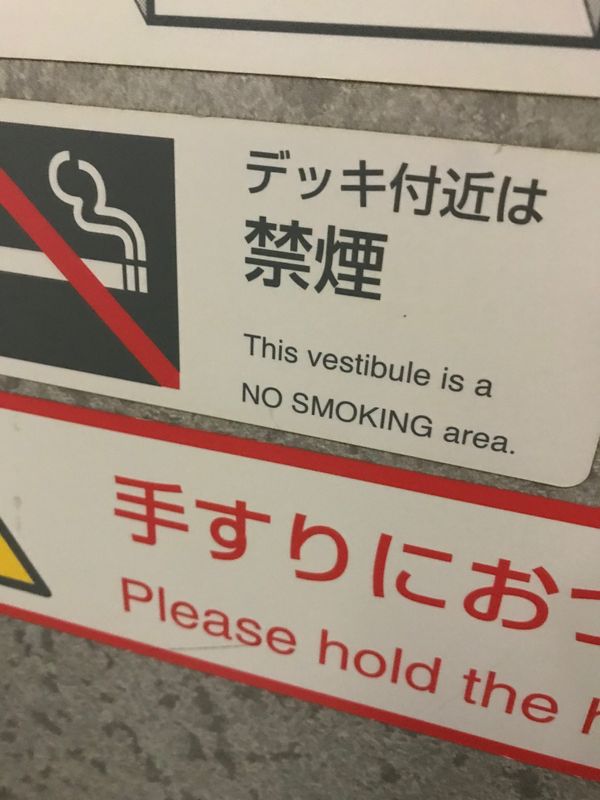Nov 27, 2017
Uncommon words make for odd signage!
To me, one of the elements that makes up an "odd sign" or badly worded phrase is when the English words that are used in the sign are over the top. Perhaps they're words that you'd only see in a textbook, or something that would never be heard of in a person's everyday vocabulary. Whilst the use of the word might be grammatically correct, it's the fact that it sounds heavily out of place that makes it awkward - you could say it would be the literary equivalent of using a jackhammer to sew your clothes.
It was only recently where North Korea insulted Donald Trump by calling him a "dotard", and sent thousands of people across the world scrambling for their dictionaries or Googling "what is a dotard?" to find out if it was a legit word or an error on the part of the hermit kingdom -- so you can see how using uncommon words can send people into a tizzy. For the record, a dotard is just an antiquated way of saying an old person..thanks North Korea, for broadening many people's vocabularies.
Anyhow...that was a slight deviation. Back onto the topic on the use of antiquated words and their relevance to odd signage in Japan!
I was traveling on the shinkansen recently, and as I was about to get off at my stop, I noticed a sign right by the doors. It's not difficult at all to understand, given the picture next to it and the clear wording of the rest of the sentence. But the word vestibule struck me as being an unusual choice.

It's perfectly correct in terms of usage, so that's not the problem -- the dictionary definition of it is as follows:
vestibule
noun
An antechamber, hall, or lobby next to the outer door of a building.
In that sense, they're right on the money. The word vestibule is actually derived from the Latin word vestibulum, which essentially means a forecourt or an entrance - and the first recorded use of the word was back in the 1600's (which is where it sounds like it belongs, if you ask me!).
I can't say that I've ever used that word in everyday speech, and I'd be curious to know how many other native English speakers have. I feel like there's a multitude of simpler words that would have been more appropriate. For instance...
"This cabin is a No Smoking area"
"No smoking on board the shinkansen"
"This hallway is a No Smoking zone"
Or honestly, you could go for the ultimate "keep it simple, stupid" route, and just leave the no smoking icon scattered around in plain sight, so that words aren't even a requirement in making the message understood. Sometimes that's surely the easiest way - pictures are generally a lot easier to make sense of, especially when your clientele on board are often from all countries of the world, with many different mother tongues.
Have you encountered any uncommonly used English words that sound out of place or over the top on signage in Japan?



0 Comments